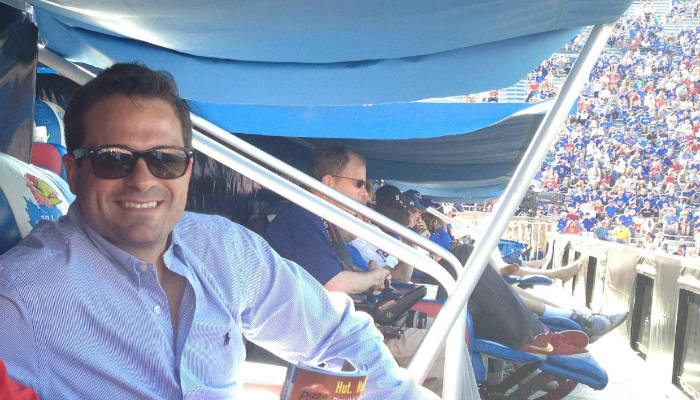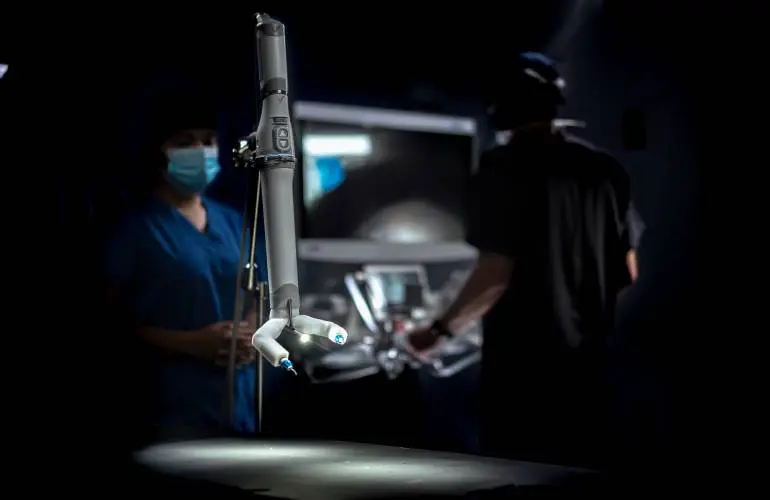 As with all fields in the 21st century, the sports industry has been rapidly reshaped by technology. Smart phone apps like AtBat or the ESPN SportsCenter app allow users to always be in the loop, while social media outlets give audiences an opportunity to be their own sportscasters.
As with all fields in the 21st century, the sports industry has been rapidly reshaped by technology. Smart phone apps like AtBat or the ESPN SportsCenter app allow users to always be in the loop, while social media outlets give audiences an opportunity to be their own sportscasters.
But how much further can the dynamic between sports and technology go? Ford Galvin wants to find out.
Using group clusters, heat mapping to track fan behavior
As Director of Data and Business Management for the St. Louis Rams, Galvin has many ideas for how to advance this relationship, but all of them are motivated by one specific goal–creating the ultimate personalized memory.
“The big thing that we want to create is a very unique fan experience,” said Galvin. “It’s understanding those personal preferences of the fan, so we can come up with the opportunity to make a moment they’ll remember forever. If we know you have a favorite player, I want to be able to send you messages and give you opportunities to meet that player after the game.”
Before his current role, Galvin served as an Analytics Specialist for the Rams, where he designed and implemented the company’s current CRM system. After figuring out an efficient method for how to serve Rams customers, he set to determine exactly who those consumers were using marketing research groups called “person clusters.”
The initial clusters were grouped based on common data points like age and discretionary income. Now, though, as they have realized tailoring messages for each cluster elicits a better response, he is collecting more personal data.
If we know you have a favorite player, I want to be able to send you messages and give you opportunities to meet that player after the game
“Who is the most avid sports fan that’s going to come to every game and have their face painted? Who’s going to bring their kids and wants to create a memory? We’re trying to identify those [groups] not just on consumer demographics but on behavioral patterns,” said Galvin
These research groups have led to small innovations like using dynamic email templates that change content and stories for each cluster.
One of the most ambitious ways Galvin is defining those behavior patterns, though, has been through in-game tracking inside of Edward Jones Stadium. The system, referred to as “heat mapping,” does not use literal heat sensors, but offers a color-coded data visualization tool.
“We use this do identify high and low areas based on the specific data points,” said Galvin. “The darker the red, the higher the summation of that data point.”
The data itself is collected via ticket barcodes.
“Technology that scans barcodes allows us to time stamp entry into the stadium and then entry into various clubs,” said Galvin.
A whole new field in sports marketing
The seeds of this project were actually planted during Galvin’s undergraduate days at the University of Kansas, where he worked for ticketing operations in the athletics department. He actually credits that first job with setting the tone for his data-centric sports career.
“I’ve always had a love for sports, and being a fan, but really applying the science to what it takes was very challenging for me,” said Galvin. “It’s still a relatively new field in sports, and that’s what was appealing to me.”
Galvin says he is still very much in “research mode,” but he did offer a few possibilities for what this new arena may lead to for the sports fans in the future.
“I see more wearable/smart phone technology,” said Galvin. “All concession stands at the World Series accepted Apple Pay. Tickets can be saved on smart phones. Disney is experimenting with RFID bracelets. The possibilities are endless.”
But all tech talk aside, the success of Galvin’s plans will mean Rams fans will be having a good season, even if their team doesn’t.
“We have no control over the play,” said Galvin. “We’re not down there coaching calls or making decisions. But people want memories whether it’s a good game or not, and we want to do everything we can [to make that happen].”




